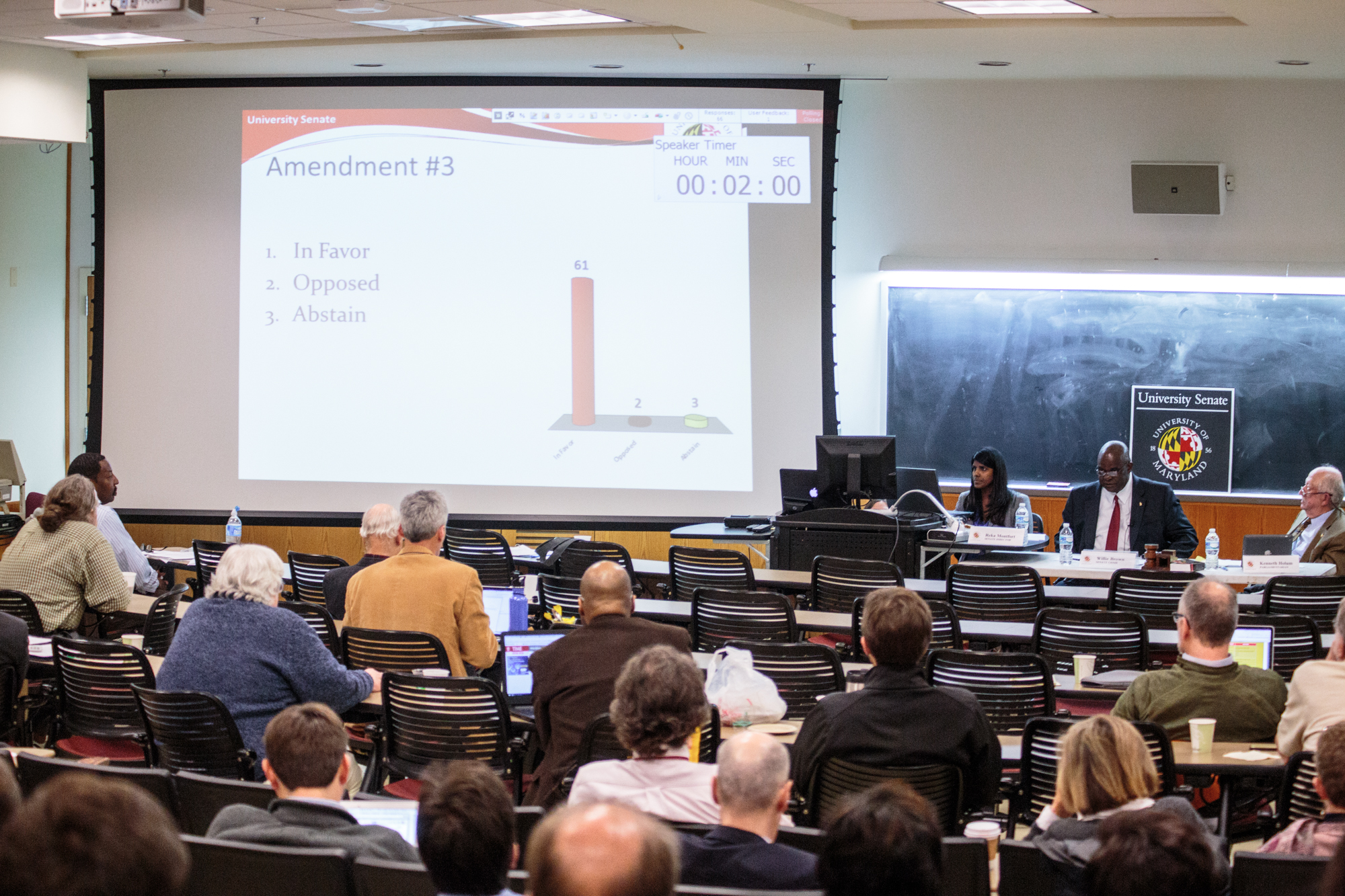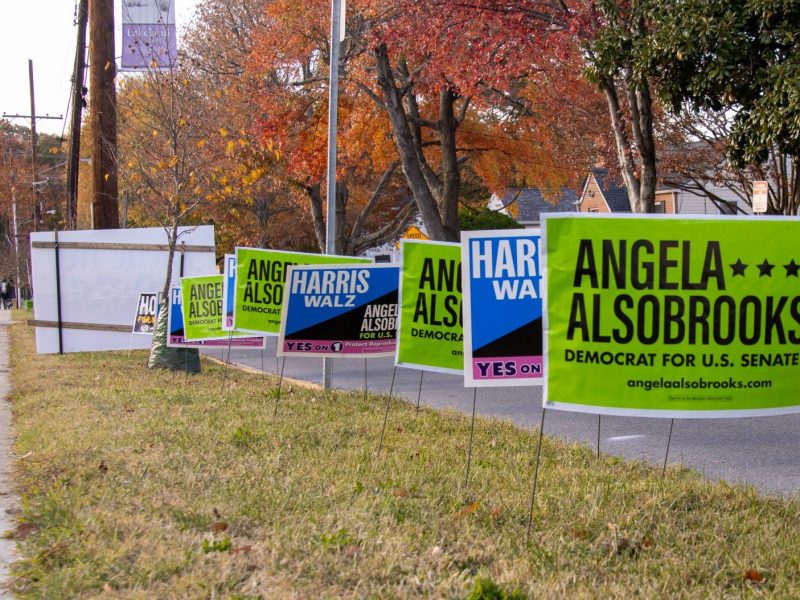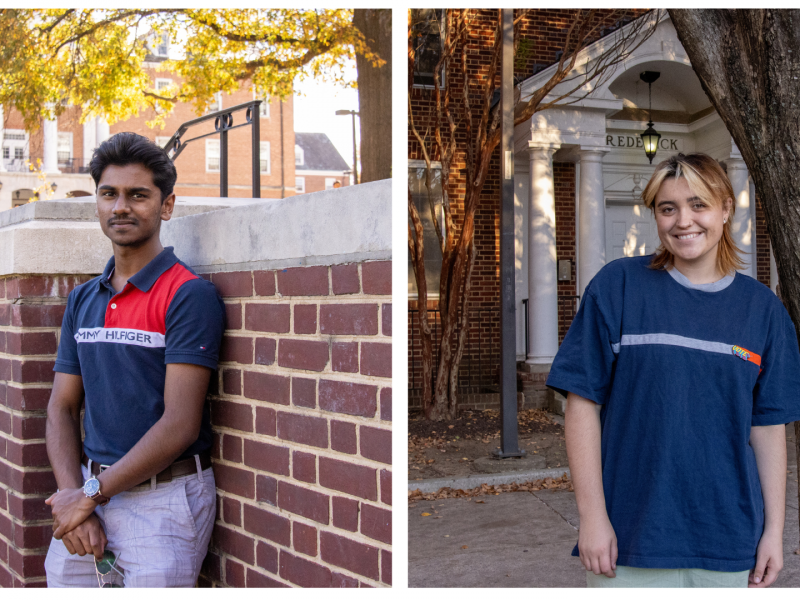At monthly University Senate meetings, student senator J.T. Stanley notices how few of his peers are in attendance.
“When I look at who attends these meetings, it is obvious that a huge amount of student senators are not showing up,” the senior individual studies major said.
Less than half of undergraduate senators turned out for 11 of the 15 senate meetings since September 2015, senate attendance records show.
“Each student senator represents a huge amount of students in their constituency,” Stanley said. “At the end of the day, they volunteer to serve in a position that represents a disproportionately underrepresented community, so there is a responsibility on them to attend the meetings.”
The senate crafts university policy on education, personnel, campus-community, facilities, and faculty, staff and student affairs. Undergraduate students are represented by college, each of which get one undergraduate student senator for every 1,000 full-time undergraduate students enrolled, according to the senate website.
In total, the senate consists of 222 senators, including 28 undergraduate students. After the current student senate elections, which end March 3, that number will increase to 29, Senate Director Reka Montfort said.
To prevent absences, the senate “releases the schedule of meetings for the next academic year as far as advance as we can,” routinely the May before the upcoming year, Montfort said.
Each meeting is held from 3:15 to 5 p.m. so there is never any confusion about the time, with meetings alternating between Wednesday and Thursday usually during the first full week each month, she added.
“Our senate is stronger because it provides an opportunity for all constituencies to have a voice in shaping our policies,” Montfort said. “It is really not a matter of how many senators from a particular constituency attend or do not attend but rather that the diversity of perspectives of the various constituencies is included in our decision-making process.”
Montfort added that students senators can voice their opinions on proposals before meetings and communicate with other senators through their messaging app.
Stanley said he believes absent student senators affect whether amendments and bills pass in the senate, citing the April 28, 2016 meeting where he proposed two amendments to a sexual misconduct bill that were focused on prevention and transparency.
One amendment needed four more votes to pass and the other fell “six or seven” votes short, Stanley said.
“If all or most of the student senators were there, we would have been easily well over the margin of victory needed to pass those two amendments,” said Stanley, who added he has missed one committee meeting and two full senate meetings in his two years as a senator, and that two of those absences were due to medical reasons. At the April 28 meeting, only 31 percent of undergraduate students attended.
But Montfort said usually “about 90 percent of the senate votes in favor of committee recommendations,” and the amendments Stanley proposed failed not because of how few student senators were in attendance but “because they were not relevant to the recommendations of the committee.”
For student senators, it isn’t always easy to attend the meetings, which take place in the middle of the school day.
Student senator Bryce Iapicca, a sophomore business management major, said he has missed senate meetings due to class or work. He wants the meetings to be held later in the day and for students to be exempt from class to attend.
“I have only missed two meetings during the two years I have been on SGA, but I have missed three meetings during my one year with the senate due to the inconvenient time,” Iapicca said.
Senate Student Affairs Committee Chair Adam Berger has missed “two or three” meetings due to being out of town for graduate school interviews and conferences. “Ideally, it would be great” if more student senators could attend, Berger said, but it can be difficult to miss material when skipping class for meetings, he added.
“Normally bills pass in the senate with flying colors, so 15 people absent doesn’t really make a difference,” he said.
Montfort said she has looked at ways to improve student attendance, but “if the senate meetings were held any later, faculty and staff — who have lives outside of the university and tend to be on campus from 9 to 5 — wouldn’t be able to attend.”
Stanley said all senators should face reprimands or dismissal if they miss a certain number of meetings, but students should be held to a higher standard than faculty and staff who don’t show up.
“Out of everyone on the senate, students could leave a professional responsibility without the most repercussions,” Stanley said. “If you have to teach a class and cancel it to go to the senate meeting, that hurts a lot of students, whereas you are only hurting yourself by missing class as a student.”




